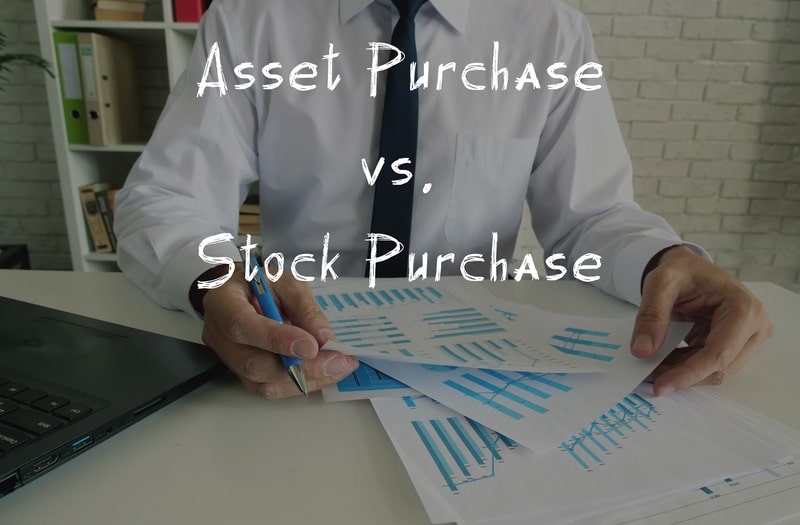When buying or selling a corporation one of the primary considerations is how to approach the sale – should it be a transfer of assets or stocks? You may be thinking, “Does it really matter as long as I get the best price and/or value?” Yes; how you structure the deal has significant legal and tax implications for both the seller and the buyer.
Asset Sale
An asset sale occurs when a company sells all or a portion of its assets. With an asset sale, the seller (aka target company) remains the legal owner of the corporate entity but no longer owns the assets sold. The corporation remains intact and is essentially a shell company with no assets other than cash from the sale. A stock sale is the acquisition of the shares of a business. In a stock sale, the buyer takes over ownership and control of the target company and the corporate entity remains intact with a change in ownership (stockholders and directors-officers).
Asset sales allow buyers and sellers to agree as to the specific assets and liabilities they take on. If there are certain aspects of the business the buyer does not want to assume (for example, specific customer accounts, agreements with third parties) they may be carved out of the asset purchase giving the buyer greater flexibility. However, transferring contracts to the new owners (such as those with suppliers, customers, or a lease agreement) becomes difficult as doing so requires the consent of a third party. For example, customer contracts or orders require and assignment of contract where the order with the Seller’s company is assigned to the new corporation. Likewise, if the Seller’s company has licenses such as a Contractor License or healthcare license, these licenses are issued to the corporation and cannot be transferred or assigned to a new corporation. The new corporation would have to apply for a new license which in some cases can take several months, or with healthcare companies with Medicare licenses can take over one year.
Stock Sale
By contrast, in a stock sale, the buyer purchases the company outright. Meaning, the buyer is acquiring the corporation and acquires all assets, liabilities, and obligations of the company whether known or unknown (unless expressly excluded by agreement). One significant advantage to a stock sale is its simplicity: nothing needs to be re-titled, there’s no negotiating with third parties for consent, and contracts/licenses do not need to be transferred (assigned) to a new corporation (entity). Stock sales are often chosen for acquisitions of companies that have licenses such as contractor licenses, healthcare licensing, and government contracts that are difficult to transfer.
Keep in mind that each deal is unique, and the buyer and seller preferences described here are generalizations. The parties should explore the pros and cons of each type of transaction with a lawyer and accountant to determine what best suits their needs. For additional information as to the legal implications contact:
Alessa Huber
Cooper & Huber
949-209-2860
https://chcounsel.com/
State Bar Disclaimer: This information is for educational purposes only and is not legal advice. If you need legal advice or would like to speak with an attorney call 949-209-2860.




